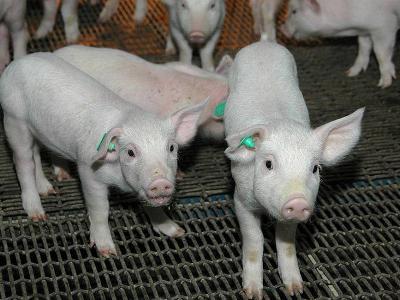Weaning stress on piglets and their microbiota

Highlights from the Lallemand Animal Nutrition 7th International Levucell SB Technical Meeting
On May 25 and 26, approximately 150 swine industry professionals from around the world gathered in Barcelona, the capital of Catalonia, Spain’s major region for pig production, for the Lallemand Animal Nutrition Seventh International Levucell SB Technical Meeting. One topic of the meeting was the effect of weaning on piglets and the microorganisms in their bodies.
Jose Francisco Perez, a swine nutritionist from the University of Barcelona, discussed how early life stages strongly impact future performance. Perez presented various dietary strategies to reduce the impact of post-weaning stress on swine performance. For him, several factors affect future performance.
- With sow hyper-prolificacy, lightweight piglets have become more frequent. They will not perform as well in the nursery as heavier piglets and show higher mortality rates.
- Weaning is a critical period for the piglet, an important source of stress and potential health and performance issues, linked in particular to reduced feed intake. According to Perez, producers should focus their efforts on the post-weaning period. Ken Mellits from the University of Nottingham in the U.K. took a deeper look into the piglet digestive tract and, by using next generation gene sequencing technology, showed how weaning affects the piglet digestive microbiota communities.
- In recent years, the excessive use of antimicrobials in piglet feed has been questioned, and Mellits showed how their systematic use has impacted digestive microbiota diversity and leads the way to higher infectious risks. Today, efforts are underway to find acceptable alternatives. According to Perez, there is no magic bullet, and a successful strategy to reduce the impact of weaning stress comes from a subtle balance between genetics, nutrition, animal environment and management.
In this context, Perez discussed some dietary strategies such as fine-tuned calcium and mineral supplementation, the use of zinc oxide and its associated risk of the emergence of resistant bacteria. Perez concluded that “we have to act on a multi-factorial stand point on both the sow and the piglet.” As an illustration of probiotics’ effects to help balance the gut microbiota and reduce weaning stress, Mellits showed results of Levucell SB studies, indicating that the probiotic helps maintain microbiota diversity around weaning as well as following antibiotic treatment.

Related news
 Germany feeding pigs sustainably without soy
Germany feeding pigs sustainably without soy The entire pig production chain in the German state Mecklenburg-West Pomerania is teaming up in an attempt to shake off its dependence on soy imports.
 How the anti-inflammatory drugs given to sows affect the piglets
How the anti-inflammatory drugs given to sows affect the piglets The primary objective was to investigate the effect on IgG transfer to piglets, piglet mortality and piglet performance.
 Piglet growth helped with yeast instead of antibiotics
Piglet growth helped with yeast instead of antibiotics The British pound dropped nearly 15 percent against the euro after the June Brexit vote, but UK pig producers may benefit from this currency situation